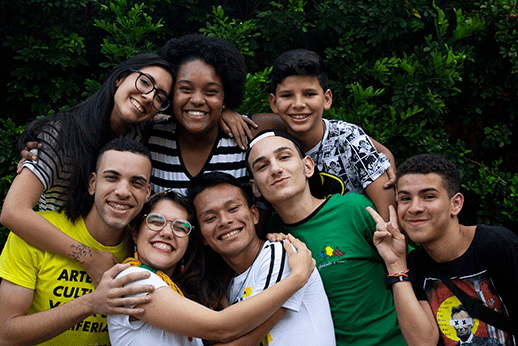Shaping the upcoming leaders of the world into prosperous individuals is the most immediate and crucial task in this century. Indeed, as stated by His Highness the Aga Khan: “pluralism is no longer simply an asset or a prerequisite for progress and development, it is vital to our existence.”
New eras come with different needs, and pluralism is an increasingly important ideology for the 21st century. In an ever more globalised and connected world, tolerance and understanding of cultural difference are vital to tackling both global problems such as the climate emergency, but also to create domestic harmony, with migration and asylum-seeking becoming commonplace.
The Schools2030 project, led by the Aga Khan Foundation, supports this vision by establishing networks of stakeholders – teachers, school leaders, communities, civil society bodies, education officials and others – that work towards improving holistic learning outcomes in pre-tertiary educational institutes across ten countries by creating enabling environments for school-led innovation.
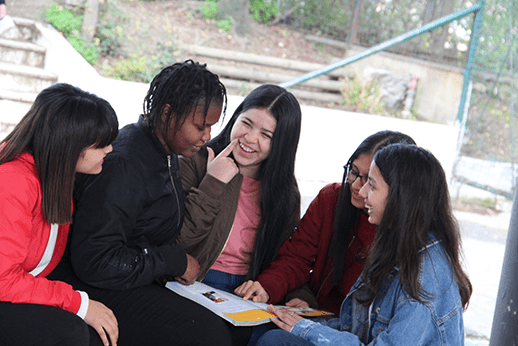
Portugal and Brazil, two of the countries where Schools2030 operates, have very diverse communities, and educators in these geographies increasingly see a pluralistic outlook as an essential characteristic that needs to be instilled in young people and thus integrated into curricula.
Portugal has a relatively large migrant community thanks to its welcoming and relaxed rules that allow undocumented immigrants to work and obtain an easy path to residency. The state has been extremely welcoming of Ukrainian, Syrian, Pakistani, Afghan and Egyptian refugees and makes efforts to ensure that children of all backgrounds can access quality education. Such cross-cultural environments are particularly helpful for normalising different cultures amongst children from a young age. Similarly, Brazil’s numerous indigenous groups, means that in certain parts of the country children must interact with cultural difference from early on.
To help nurture these respectful mindsets, the Schools2030 teams in Portugal and Brazil are working with teachers to come up with creative teaching and learning strategies. At the recent Schools2030 Global Forum in June 2022, teachers from both countries gave a presentation on how their ideas are improving the teaching of pluralism and respect for diversity in their respective countries.
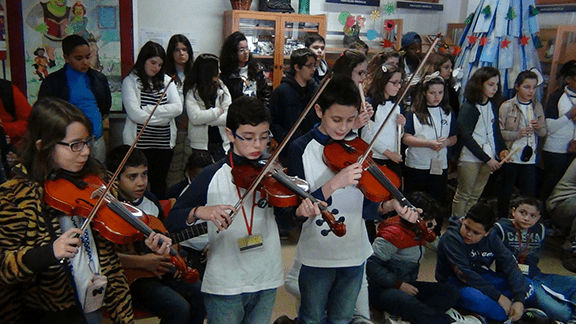
Horizontal and cross-age learning structures – Portugal
As with all Schools2030 countries, the team in Portugal – in collaboration with several partners and the Ministry of Education – has selected five competencies for each age group that teachers will focus on for improvement. In addition to literacy and numeracy for each group, the team have also prioritised empathy, relationship-building, critical thinking, problem-solving, reconciling tensions and ethical decision making. It is clear that there is a concern at national level to educate young people in effective and compassionate interpersonal relationships – arguably at the heart of a pluralistic disposition.
With large migrant communities living alongside Portuguese natives, pluralism becomes a very important mindset, particularly because it allows different cultures to form one united and strong community. The teachers here keenly adhere to the Minister for Education, Hon. Prof Joao Costa’s assertion that “there’s no average student”. In practice, this means getting the best out of each student, which in turn means creating an environment that nurtures their individuality within the wider group.
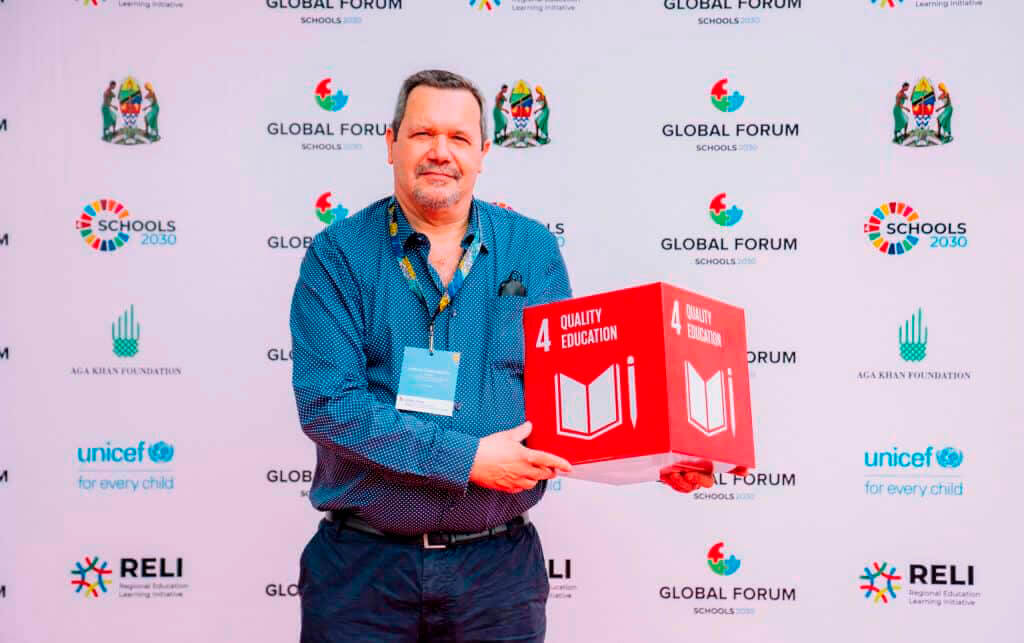
During his interview, Professor António Castelo Branco, headteacher at the Ferreira de Castro School Cluster, shared that pluralism is not perceived as a discussed and strategised competency, but an ideology that is subconsciously seeded into the minds of children. All individuals are treated with equal respect and affection by their teachers, irrespective of their appearance, abilities or cultural background, and are taught to reciprocate the same towards the people they are surrounded by.
During the assessment stage of Schools2030’s Three-Step model (Assess, Innovate, Showcase) in late 2021 children were tested on multiple criteria that allow the students themselves – as well as teachers – to evaluate their strengths and weaknesses and construct a learning space that will foster improvement. Using the information from the assess phase, teachers then embarked on the Human-Centred Design (HCD) process (using Schools2030’s HCD Toolkit) and determined that a cross-age learning strategy would address the chosen domains. In this way, the innovation addresses collaboration, empathy and relationship-building, as children from various age groups come together to share and listen to each other’s thoughts and learnings.
With schools in Portugal operating in clusters, inter-scholastic and cross-age lessons are easily regulated and monitored through structured rotation to maximise interaction with different individuals. Students of different ages have different maturity levels and perspectives which, upon sharing with others, enables them to grow aware of each other’s thoughts and fosters critical thinking, empathy and self-awareness. In order to increase self-awareness and empathy in particular, external experts are occasionally invited to engage in thought-provoking activities and inspirational talks.
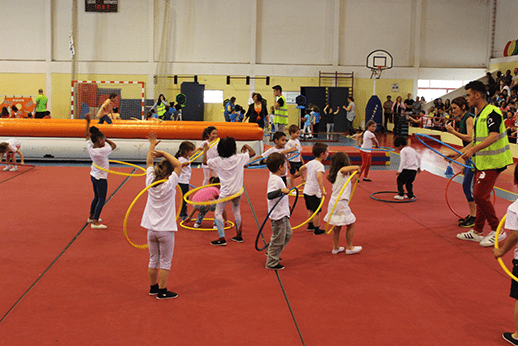
Empathy through knowledge sharing – Brazil
Schools2030 in Brazil is implemented by Ashoka and the University of Sao Paulo. Ashoka is an organisation that focuses on nurturing changemakers to lead to transformations in communities. The schools that Schools2030 works with in Brazil have a similar vision to those in Portugal. The classes in some of these schools are carried out in both open and closed spaces, which allow the students to grow more aware of their surroundings. As the Amazon rainforest comprises 40% of Brazil, many classes take place in natural settings as well.
Some of the schools operate to prioritise personality and character development rather than traditional knowledge accumulation. The teachers and Ashoka representatives in Brazil strongly believe that textbook knowledge is easy to obtain, but an individual’s perception of the society is what makes their contribution unique. These values are reflected in the focal domains chosen by Brazil’s Schools2030 team, which include empathy, leadership, self-awareness, collaboration, and creativity. Thanks to Brazil’s highly decentralised structure, with municipalities and states in charge of education policy and curricular priorities, the schools have been able to develop their own goals. For example, the Ode Kayode Pluricultural School, which promotes the recognition of different Brazilian identities, ranging from indigenous and African to Afro-Brazilian.
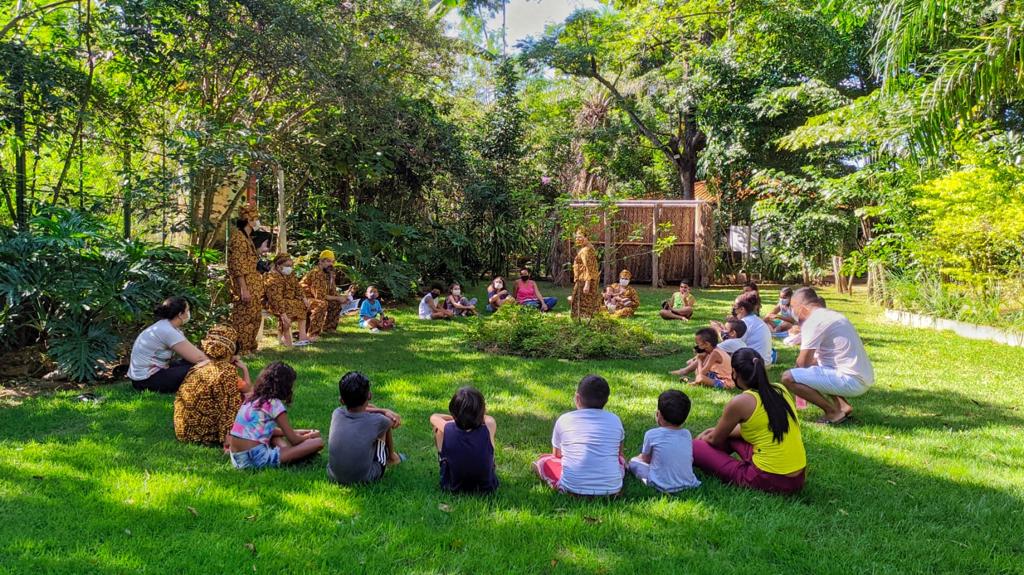
In coordination with the National Advisory Committee in Brazil, the teams identified certain goals including reducing violent attitudes, encouraging horizontal sharing, being co-responsible and relationship-building. These goals and focal domains together are taken aim at through interactive activities and events like the Good Morning Circle, Pedagogy of the Party, Ancestral Day, and various cross-cultural and cross-age learning practices, which have developed by the schools themselves to suit their own contexts. The Brazil Schools2030 team then co-construct the action-research process with the schools so that they can systematise and share these transformative practices.
The Good Morning Circle, in particular, is a way of instilling daily-life etiquette in children and supporting their understanding that every day is a new beginning and a new opportunity to learn from one another. The purpose of executing activities in circles is to encourage equity between individuals and the understanding that everyone in the circle is valued and acknowledged. Similarly, Pedagogy of the Party is a social activity through which children celebrate their own and each other’s creativity, talents, tastes and cultural differences. This enhances their knowledge of other beings and increases harmony amongst students. As the African proverb goes, “It takes a whole village to educate a child” – multiple stakeholders and agents come together to contribute to these techniques.
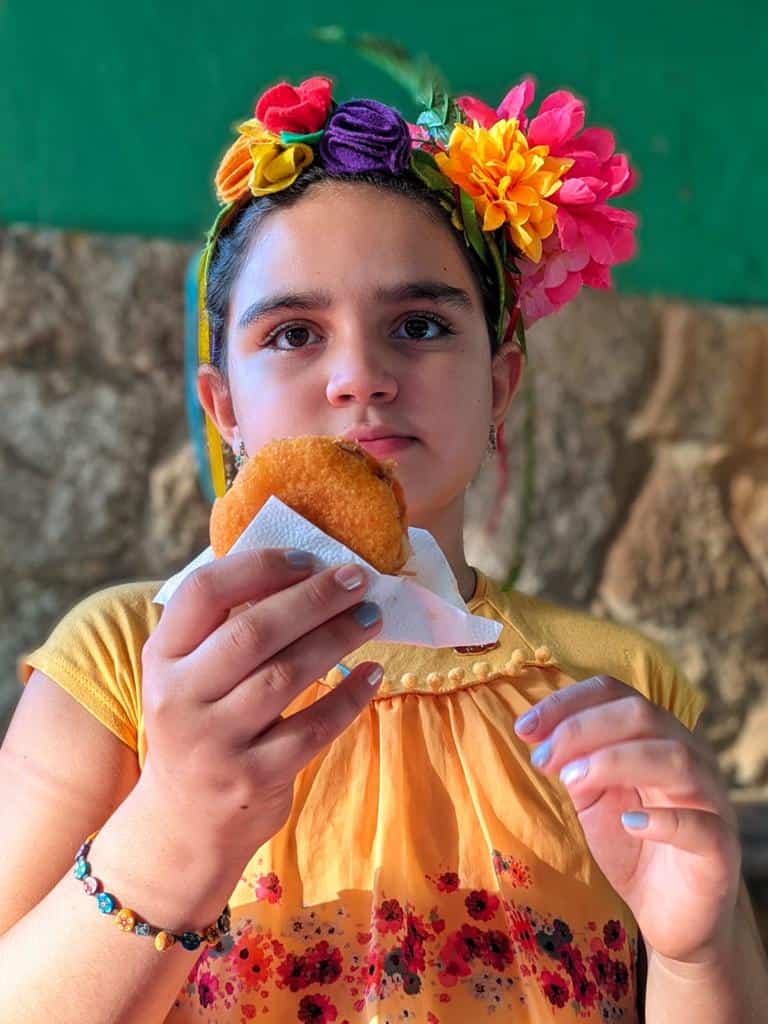
Ancestral Day is another strategy that the Brazilian team devised in order to promote self-awareness and respect for diversity. This event allows each student to explore and share about their cultural roots through interactions with the elderly people in their family. Grandparents of students are invited to schools and asked to share about the history of their family, which allows children to discover about their family history – as well as each other’s – and what makes their identity so important to the community. The Baniwa Eeno Hiepole School, where these techniques are being piloted and which promotes Indigenous Good Living, sticks to its vision of utilising a student-centred education system, rather than a top-down education system, to support students to construct meaningful knowledge about the world around them. In addition to these strategies, the schools also make use of student councils, that allow children to take up leadership roles and build working relationships with their fellow classmates. It encourages students to have a voice and respect each other’s opinions through collaborative problem-solving.
Impact and Next Steps
These strategies from both Portugal and Brazil have so far been anecdotally successful across stakeholder groups. Through these methods, teachers have successfully evoked greater passion for learning in their students, as they feel more respected, valued and listened to by their peers and the community in the school setting. These strategies have also had a positive impact on the students’ family members, as the schools’ unique approaches to teaching have caught their attention and encouraged more participation in their child’s learning. Although it takes a reasonable amount of time for parents to adjust to new teaching models in these schools, they are beginning to see the value for themselves and their child’s development. The practices also have a two-way impact; as the students learn and share, their ideas introduce new concepts to the teachers and this helps the community grow closer and more empathetic towards each other.
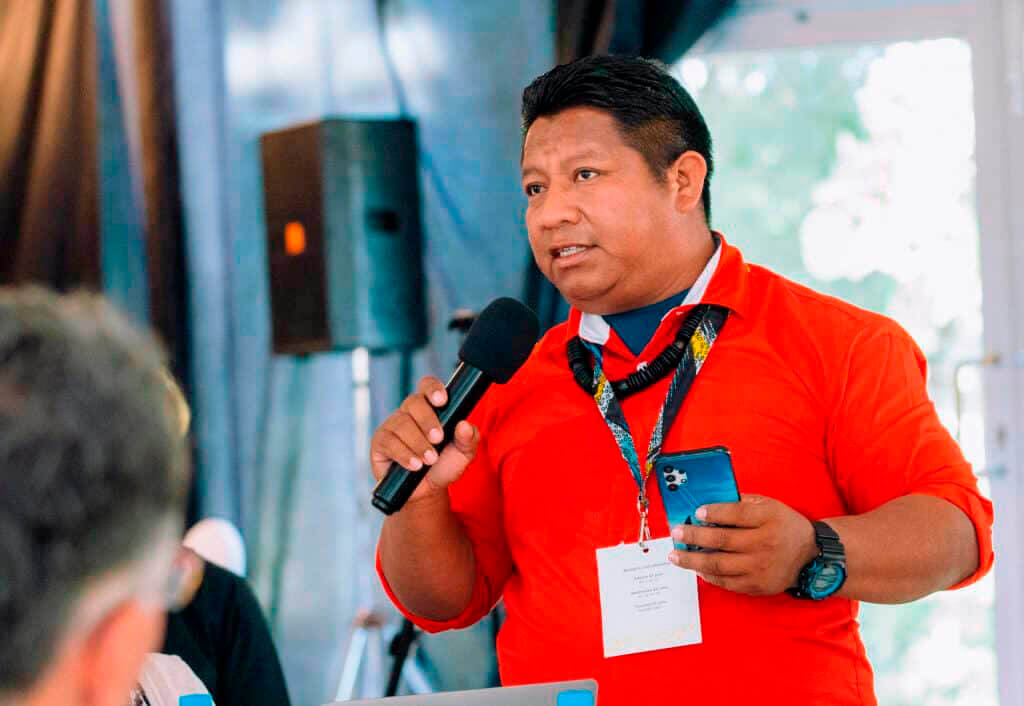
By following Schools2030’s model, schools in both Brazil and Portugal have been able to formalise these pedagogical practices – many of which had existed to some degree before the programme’s inception – across the schools involved, as well as highlight the significance of non-academic skills. The programme has also supported schools to improve assessment techniques through its ‘assess’ step, particularly across the non-academic domains. The ‘innovate’ step has provided teaching communities with an opportunity to develop new – and refine existing – learning strategies through the use of HCD tools and the action-research process, and allowed teachers to act on evidence gathered during assessment. And the ‘showcase’ step – aimed principally at scaling these ideas and fostering systems change – allows the Schools2030 community to share their techniques and evidence across the world and exchange ideas to foster high-quality learning globally, most notably through the annual Schools2030 Global Forum.
Many teachers in both countries – indeed across the world – are doing their level best to provide engaging learning experiences for students, and it is inspiring how hard they work often in very challenging circumstances. Working through the Schools2030 model seems to be giving many renewed hope that their ideas for improving the student experience can actually be given the time and space to be tested. The participatory model is also showing promise in engaging more young students in their own education, as well as fostering a pluralistic outlook and a greater respect for their diverse communities.. The practices will continue to be assessed for their impact as the programme moves into its middle years, and the most promising ideas will be shared with teams across the world to be adapted for their context.
